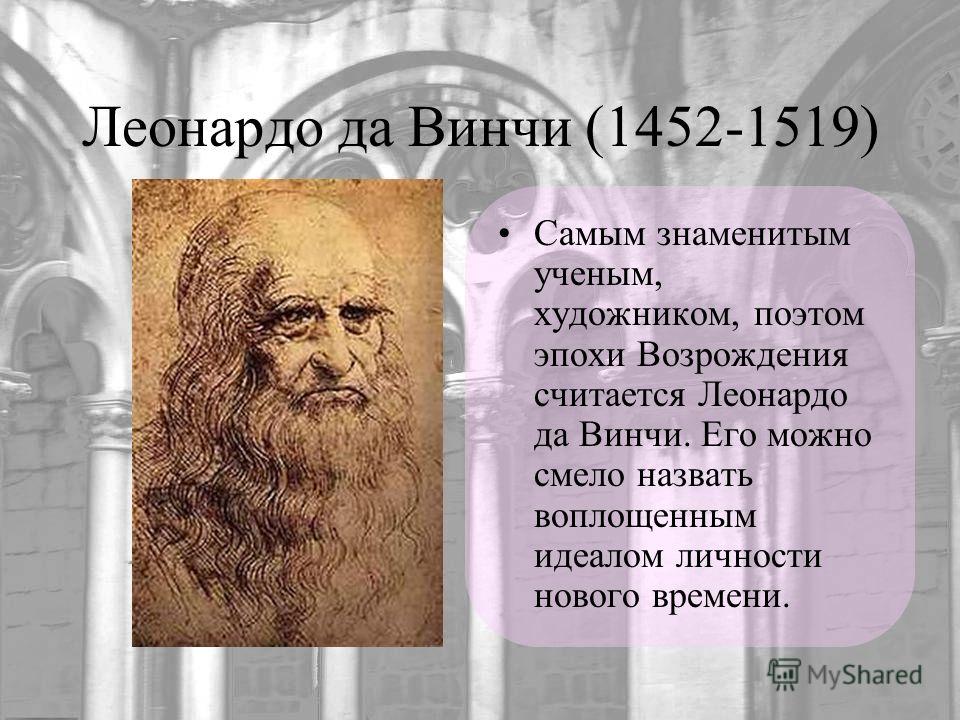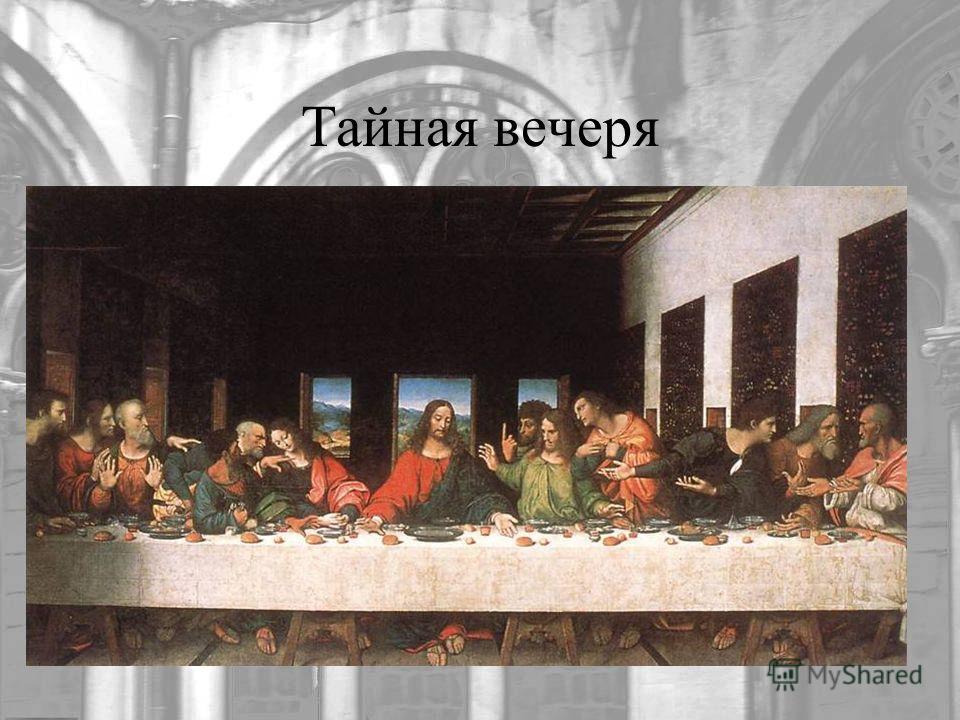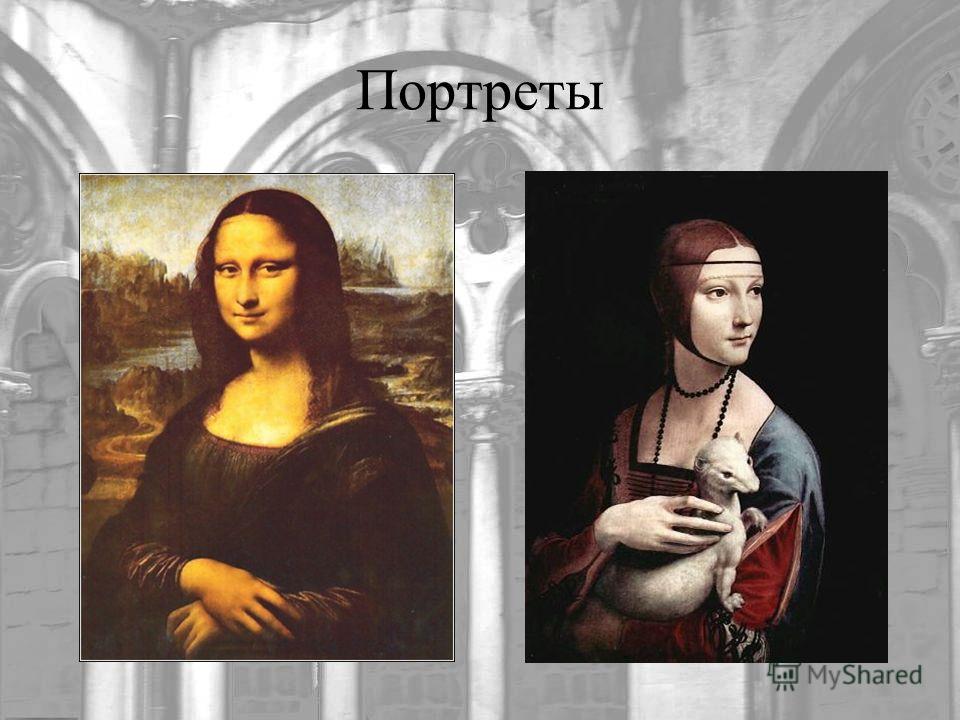Diyach kraina tvir zmist creativity. Great humanities of Europe
As a historian and politician, I see the author of the famous treatise "The Sovereign" Flora-tyets Nikkolo Maciavelli(1469-1527), which he repeated several times, which he is in love with busyness - tse "mirkuvati about the sovereign mystery" - politics. A zealous patriot of his father, Maki-Avella is alive in the era, if Italy remained fragmented and repeatedly suffered from the invasion of foreign armies. Vvazhayuy head overshoot before unquestioning the policy of the papacy, Maciavelli did not understand, but in such minds vryatuvati the land and to establish, I will only force the Italian to be a strong, only strong ruler. Moreover, the excitement of the achievement of the great meti of the wine during the day is volatile, pitiful and dishonest.
A few people thought so of their own accord, if only to declare that Maciavell herself had taken a crack at it. It is not easy for that to get involved, well, wiggling the negative qualities of the rulers, letting go of the politics of the moru-li. Winiklo to navit the understanding "Makiavelіі-lyzm" is a political lack of principle. As a matter of fact, Makiavelli was the first to say that policy is an independent-boiler sphere of activity with its own laws and principles. It is important to combine with the understanders of morality, and with the thick moral extinguishing of politics it is not easy to pin down unattractive marks. Makiavelli mriyav about one Italia and the idea of way and keep it up to the end of the day. Yogo tvir is not a utopia, but a book about real political actions.
From the middle of the XVI century. a new culture to go beyond the boundaries of Italy and begin to develop in the other European regions - Nimechchin, France, England, Netherlands, Spain. Outside the Alps, in the vastness of the colossal "barbarian svitu", the ancient civilization of the boules should not be as glib as in Italy. Here the huma-nist may have become overwhelmed by antiquity, but the stench was much more respectful of the mighty past - the history of the Nimetsian peoples and the Middle Ages as a whole. Everywhere the university is the center of scientific knowledge. Vinahid knigophecha-bath crumbled the book with a head dzherel knowledge, which took the successful expansion of ideas to humanism.
Spraved leader of the humanities on the cob of the XVI century. becoming Erasmus Rotterdam(1469-1536) - the found personality of the Pivnichny Vidrodzhennya.
Sin Dutch priest, Erasmus (reference name - Gerhard Gergards), was born in Rotterdam. Winning early, having lost his father, and with the first thoughts of the original, they pave their way into life. After finishing school Erasmus became a monk, for an hour he was overshadowed by mona-Stir in the university. monarchs rіznih lands Europeans asked him for the service, but all Erasmus saw him, not bothering to waste his independence. Vіn respecting that they came to one people, and calling themselves "a huge man". And indeed, Erasmus is alive, having arrived and wrote his creation in the Bagatyokh lands of Europe. Particularly popular was Erasmus's "Praise of Foolishness," which was the one who assigned his own most beautiful friend - Thomas More.
Thomas More is very good people, fair and important. Sposterіgayuchi country people, vin having written his famous "Utopia". The breakdown is conducted from the name of the buval mandrill guy Gitlodey. Winning talks about the harsh order in England at that hour and, right there, about the happy islands, demean private property and life, everything is good and live in a world of goodness. There are no pennies here, I will take away the kozhen "all according to consumer needs." Utopians live in large families in booths, eat at once in huge palaces-palaces. However, tse zovsim does not mean primitive zalny education. The juveniles are gifted to live in physics and science. All of them during a six-day working day can read, play sports, play. Utopian perekonany, so happy people are in a harmonious development, as well as in a reasonable way and in a rational way. The power to cherish the more important sciences, and a bunch of spikelets to serve as a sign of the power to replace the crown. "Utopia" is a small, magnificent success among the readers. People were willing to visit, as they were in the happy land and ready to read the news.
The pinnacle of the Spanish literature of the XVI century. і overnight creativity became an ear of European literature Migela Ser-Vantes (1547-1616).
Cervantes resembled an old noble family. Do not give in to the possibility of serious illumination, Migel read through all the lines and zoom of great knowledge. For a larger part of his boisterous life, Cervantes became a soldier, and then became a tribute. Do not miss a minute in a busy time, bid-Nyaga navigate for an hour, leaning over grates.
Having made a call, having thrown service and engaged in literary creativity.Material from the site
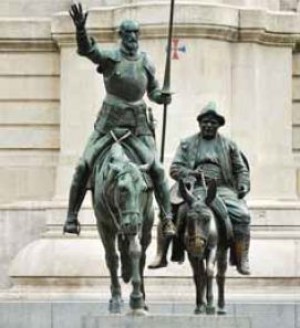 |
| Monument to Don Quichot and Sancho Pansi in Madrid |
The novel by Cervantes "The Wise Gidalgo Don Quichot s Lamanchi" immediately brought the author's knowledge of the story. Tvir bulo is conceived as a parody of Litsarski Romani. Yogo hero, reminiscent of the nobleman Alonso Kokhan, lives in the wilderness of the Silska, uninterruptedly reading Licarski Romani and Mriє about the great feats in a series of romances. It is self-sufficient to rob the zealous villager Sancho Panza with his troop carrier - a humble and simple-minded people at once. All at once the stench vidpravlyayutsya on the jokes of glory.
The feats of the fearless idalgo wiggle are five dumb and ridiculous, ale vin mriu about those who “everywhere panued friendship, love and grace”. And it’s step-by-step for the change of irony to come sympathy to the Litsarev’s total image, generously preying on the weak and presupposing the degradation. Christmas "Don Quichot" - a friend of Biblia's writing, the book has been translated for a few copies.
Food from tsy material:
Meal on the cob of paragraph
The culture of the epoch of Education can be respected by the decline of the humanists of the Renaissance, the odor of the stench kept the value of the people as special, their right to freedom, happiness, development as well as humanity. Looking at the suspension of humanity of the XV-XVI centuries, Yak and the educators of the XVIII century, they cried out to induce the humane suspension for additional ethics, based on human and other natural values, in the spirit of the rose and the great humor of people. As a butt, you can tweak the head principle of humanities - it’s about the high value of the people, about the people’s happiness (dignitas) by nature itself) and the ideas of Russo, that people are from the people of the attached morality and kindness.
Nutrition until the end of the paragraph
Nutrition 1. Yak vvazhaєte, in what did the educators use the meta and the meaning of the art?
Meta and smut the recognition of art in the service of humanistic ideals. The center of respect for the art is guilty of being a human being, a person who has rights.
Food 2. Something else literary heroes Vidrodzhennya, characters from educational novels can also go on the road. What a cry in the distant lands of Robinson and Gulliver?
Robinzon and Gulliver in the distant lands, clicking on interest before the new.
Nutrition 3. What is the value of the creativity of "painters of nobility" and "spivaks of the third camp"?
The creativity of "painters of nobility" and "spivaks of the third camp" is of great importance. The canvases of the first distant views of reality, bringing about turbulent lightness. And "spіvaki of the third camp" will imitate navkolishnє їkh real life Often the heroes of the paintings are simple workers.
Meal 4. Prepare your homepage about living way and the creativity of one of those conceived in the paragraphs of the arts of the era of Education.
Johann Sebastian Bach (1685-1750) - great Nimetsky composer, Organist, music teacher, master of polyphony. Bach's work includes over 1000 works of different genres.
It was born (21) 31 birch in 1685 in the places of Eisenach, whose ancestors were professional musicians.
At the ten-line vіtsі Johann Bach will be recognized by his brother Iohann Kristof. Winnav the maybutny composer gri na klavіrі, organі. At 15 rockies Bach studied at the vocal school of Imeni St. Michael, in the city of Luneburg. There it is possible to know the creativity of contemporary musicians, to develop all the time. From the hour 1700-1703 to start the musical biography of Johann Sebastian Bach, the first organ music was written.
Pislya of the end of the day Bach of the directions to the Duke Ernstu for the musician's landing at the court. Dissatisfaction with the fallow position of the robot to remember. In 1704, Bach will be banning the organist of the New Church in Arndstadt. At the end of the hour, rich talented creations were opened. Spіvpratsya with the poet Kristіan Frіdrіkh Henrіtsі, the court musician Telemachus, filled the music with new motives.
In 1707, Bach moved to Mühlhusen, promoted as a church musician and engaged in creativity. Vlada is pleased with her work, the composer will take away the wine city.
In 1707, Bach became friends with his cousin Mary Barbara. I know how to change the robot, having once become the court organist in Weimar. There are six children in the homeland of the musician, three of them are seen as musicians.
In 1720, Bach's squad died, even though the composer became friends once again, now at the visit of Hanna Magdalene Wilhelm.
In 1717, Bach's rock went into the service until the Duke of Anhalt - Ketensky, who highly appreciated his talent. During the period from 1717 to 1723 Bach's miracles appeared (for orchestra, cello, claviri).
Bach's Brandenburzki concerts, English and French syuity were written in Keteni Bouly.
In 1723, the musician will reject the cantor's and the teacher of music and Latin in the Church of St. Thomas, instead of becoming the musical director in Leipzig. A wide repertoire of Iohann Sebastian Bach, including both svitska and spirit music. For his life, Johann Sebastian Bach made him a member of the musical collegium. Some of the cycles of the composer Bach vikoristovyvali all the instruments ("Musical Bringing", "The Art of the Fugue")
V the rest of the rock Life of Bach Shvidko Into the Zir. Music yogo todі was respected unfashionable, old. Uninvolved on the tse, the composer prodovzhuvav pratsyuvati. In 1747 rotsi vin svoryu a cycle of n'єs under the name "Music of the Offering", the assignments of the Prussian king Fridrikh the Other. The rest of the robot was the collection of creations "The Art of the Fugue", which included 14 fugues and 4 canons.
Johann Sebastian Bach died on 28 April 1750 to rock in Leipzig;
Zavdannya to paragraph
Nutrition 1. There are three books on Hogarth's self-portrait. Author two of you already know - Shakespeare and Svift. Chi vipadkovo tse? Yak vi can you explain the vibir of the artist?
On Hogarth's self-portrait of Shakespeare's book and Image Light is not vivid. Hogarth Bouv is the author of illustrations to books of cich authors
Pitannya 2. Admittedly, in the works of court painters, they could appreciate the occasional glances, but they could win criticism.
In the works of court painters, the occasional glance could have highly appreciated the level of majesty of the artist. Beautifully written landscapes, light, take a look; meysternally transferred to the mood of the heroes; zagalne mrіiliviy nastrіy pictures Criticism could be haunted by the lack of faithfulness, unreality of the presentation of the plots, distant from the life of the life.
Pitannya 3. Beethoven, having said about Bach: “Don't be a chill! The sea is guilty of booty im'ya yomu "(" Bach "in nimetski - strumok). What are the benefits of the cymbals?
Beethoven, having already appreciated the music of Bach, calls him “the true father of harmony”. He is suitable for those who love it, because Bach’s talent is indiscriminate, “like the sea,” and his artist's decline is magnificent, including more than 1000 works of different genres. Bach's works represent all significant genres of that hour, except for opera; win the book about the achievement of musical art from the period of the Baroque. Bach is a celebrity master of polyphony, prodovzhuvach of old-fashioned traditions, in his creativity polyphonia is accessible to the development.
Pitannya 4. Yakiy tvir, guessed in the paragraph, did you read it? Roskazhit about your enemies. What kind of change did you put to the work of yours, how could the heroes be told by those?
The novel "Gulliver's Road". It looked like a tsikavim cheese. Those lands seem to be unseen, de-buvav Gulyver, tsikavo reading. Inhabitants described in the romance of the land have human and suspicious wadis. Pislya vivchennya by those came to mind, how described the land may their prototypes in real life European powers... So, Lilliputia is a parody of England.
Nutrition 5. Vikoristovuchi dodatkovy material of the handler, characterize the architectural styles of baroque and classicism. Did you know what ideas of the era were depicted in cich architectural styles? Think, yaka music could suprovodzhuvati your insight into the architectural monument to the Baroque style or to the classicism style. Explain your point of view.
The baroque style evolves into folding, chimeric and writing forms, a great number of embellishments and details. Baroque, it is ideal to approach the greatness of the Catholic Church and absolutism, not just the main deputies of the baroque bui of churches and kings.
Especially respect in the cikhs of the Budapest came to the refinement of the primitives, which were the architects and the artists of the magical nadati of the vernaculars of the written viglyad. Vishukaniy and aristocratic Baroque style has little to do with the philosophy of the misters of Education. The invocations of Voltaire, Rousseau, Locke cheruvatisya rose and morality, to turn to nature, meant for the mystery of the entrapment of antiquity. The fashion enters the rigor of the line and the noble simplicity, inherited from the quiet greatness of the walnut images. Quirks of classicism in architecture are seen from the baroque writing and take for the eye the naturalness and harmony of ancient architecture: smooth surfaces, modest decor, porticoes and colonies give awakenings a cold vitality.
Peculiarities of the era of the Renaissance: Consciousness of evidence, so that actions are taken from a religious glance at light. Expansion of ideas to humanism, so I respect to human specialties, Viri in the power of the very people. Expansion of scientific knowledge. Reliance on the culture of Antiquity.
The head is the meta of the life of the people. Middle AgesNew hour (Revival) For a person it is necessary, to be true to God, after receiving the church rituals, do not grishiti. Success. Be glorified in mystery, science, trade, education, roads, etc. Ale obov'yazkovo bring reproach to people !!!
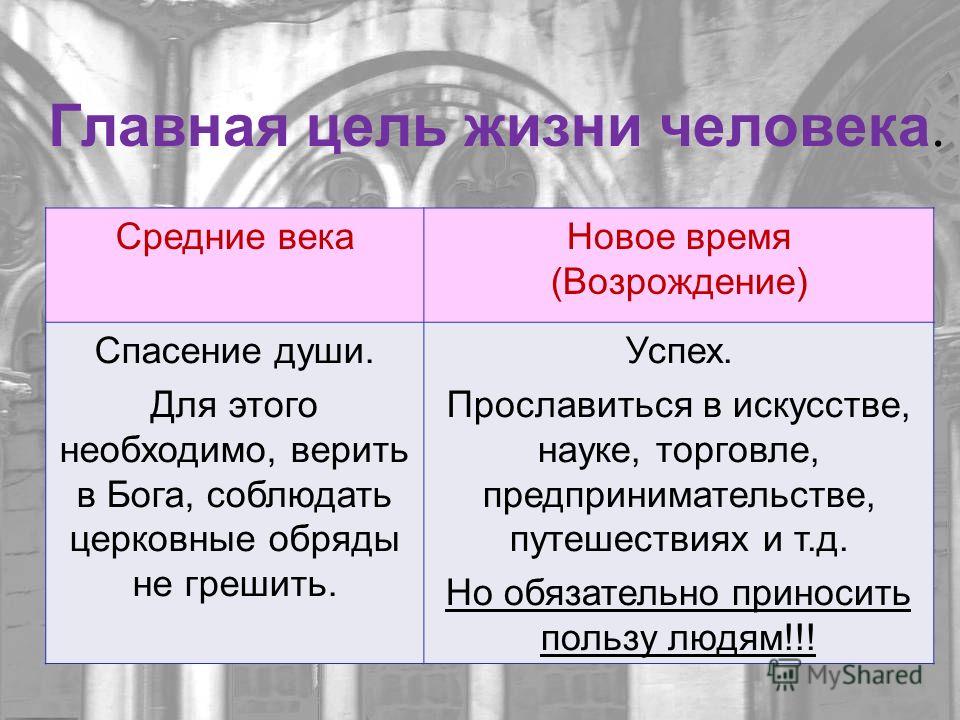
Humanism Humanus (lyudin), humanism, humane, humanitarian, humanism; Lyudin is kind to God, beautiful and harmonious: enlightenment, physical disapproval, wanting to be mystical and philosophical; The main things are: honesty, valor, creativity, patriotism!
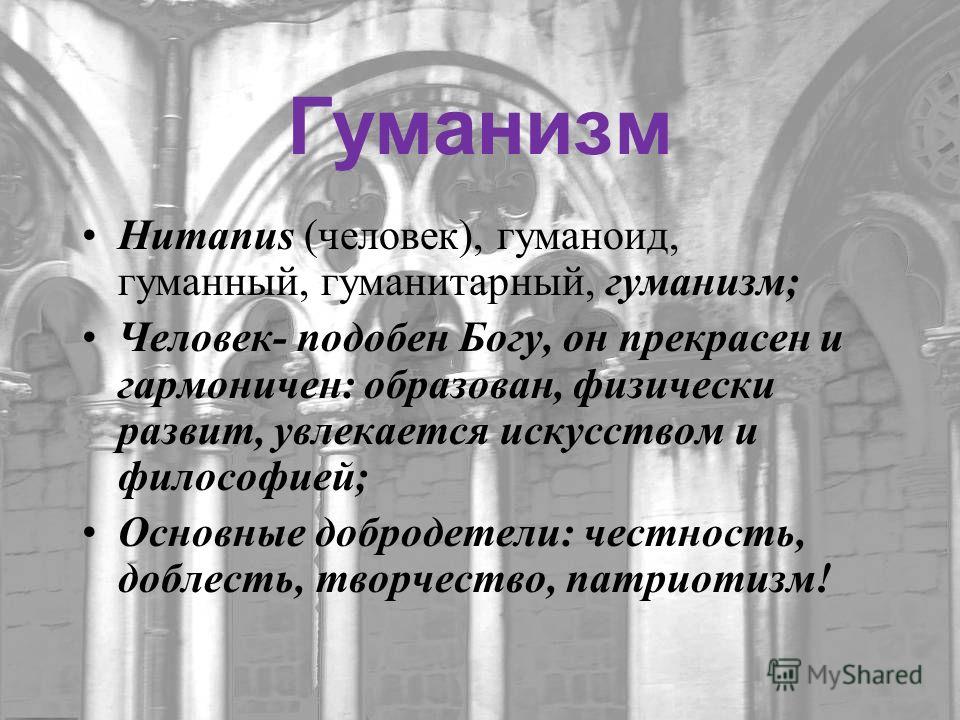
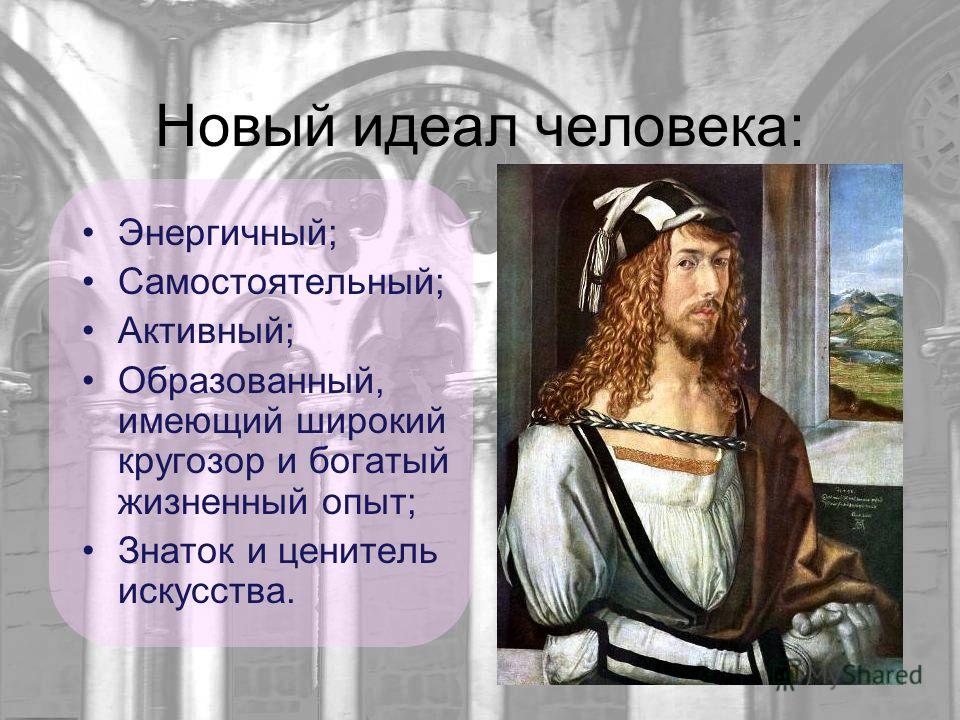
Lyubimov "Mystery Western Europe»: The Italian humanities saw the light of the classic old days, the ancient authors were whispered in the backwoods, and the ancient authors were cleansed with a copy of the copy, and they cleaned up all the things introduced by the middle-aged Chents. Pools їkh bouly with half-endearing entusiasm. If in front of Petrarch, who was accepted by the first humanist, the monastery was showing up in the road, there was literally three times from the thought, but there, perhaps, it was like a classic manuscript. Інші saw the ulama of columns, statues, bas-reliefs, coins. The abstract beauty of the vizantyyskoy ikoni faded before the warm, living beauty of Marmur Venus, for the joy of all Florence, for all Rome is knotty from the earth, de von there were more than a thousand rocky. “I raise the dead,” said one of the Italian humanists, who appropriated archeology for himself.
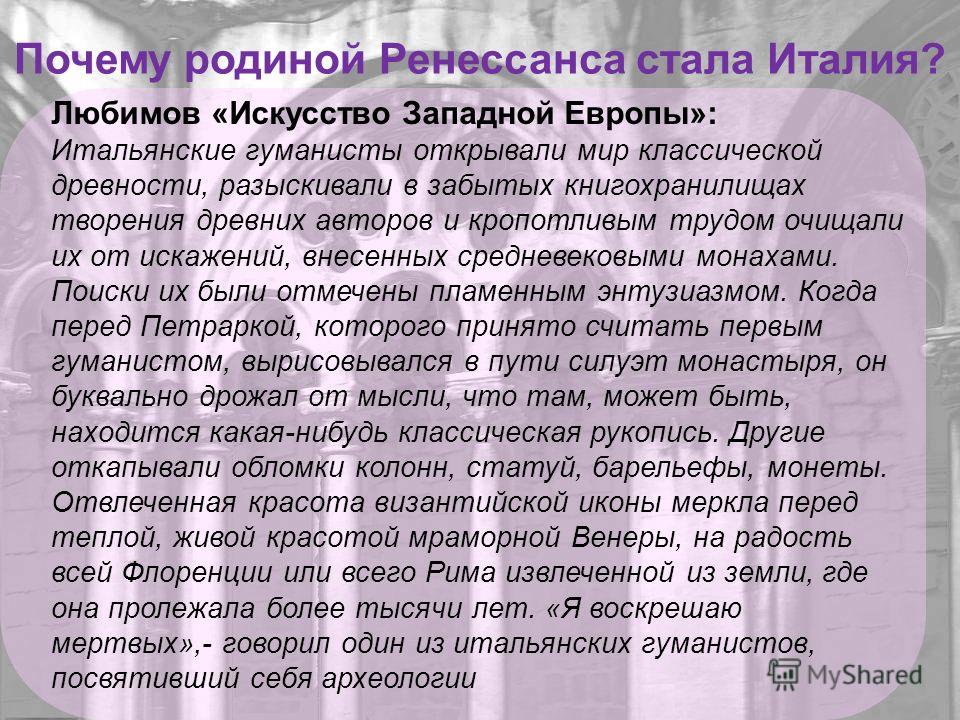
Dante Alig'єri () Dante is the forerunner of the Italian Renaissance, in the center of the main theater " Divine Comedy"The share of people, souls like wines, are ready for the hour of their obvious journey through Hell, Purgatory and Paradise.
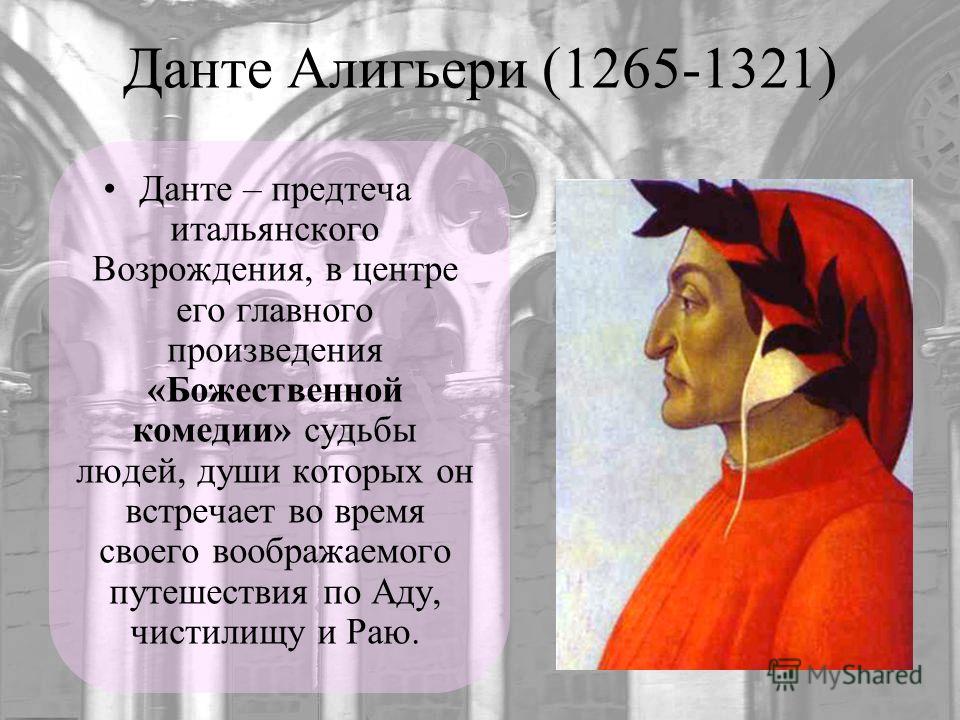
Petrarch Francesco () Lyrica Petrarch presents a new stage in the development of the Italian and European travel. The image of the beloved woman has become concrete and living, and the love experience is shown in the efforts of her super-talkativeness and minutia.
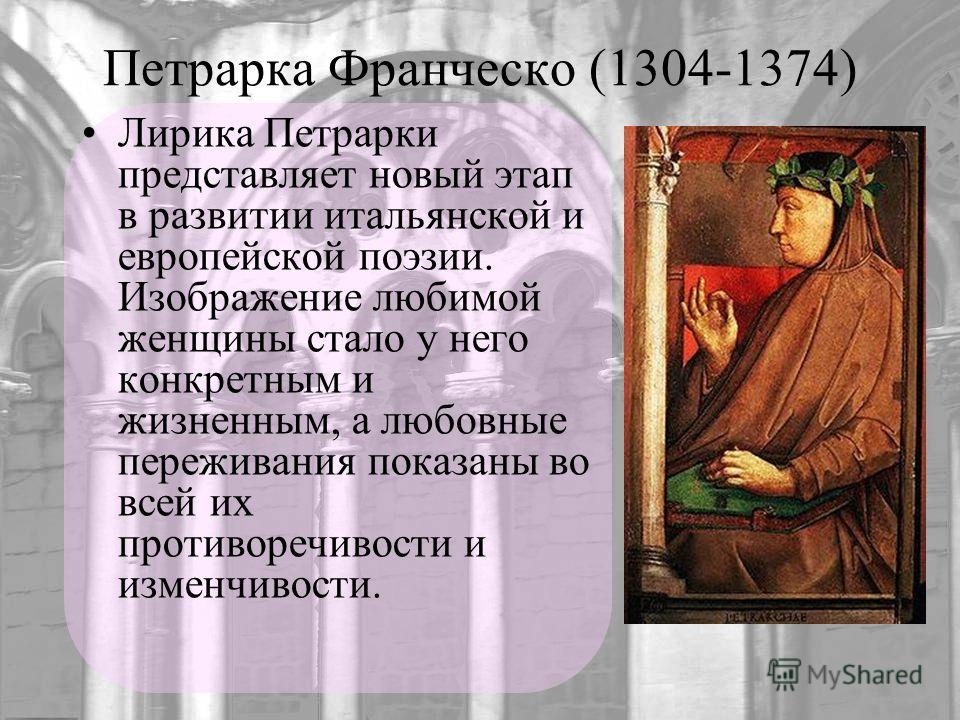
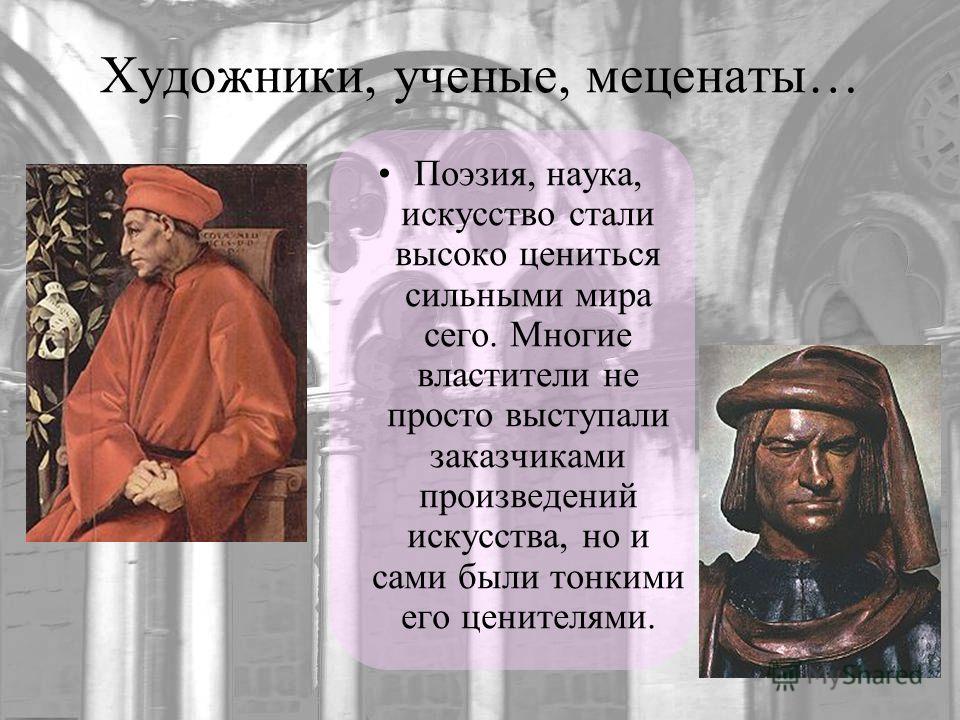
Yaky vislіv more beautifully imaginative look humanists at the nature of people? Having made the Lord a man from the powder of the earth, which is more insignificant than the other elements, as it is approved in the Bible; As soon as you take a great interest in the marvelous and great beauty of the world, then it is the beauty and vitality that is guilty of the love of Lyudin;
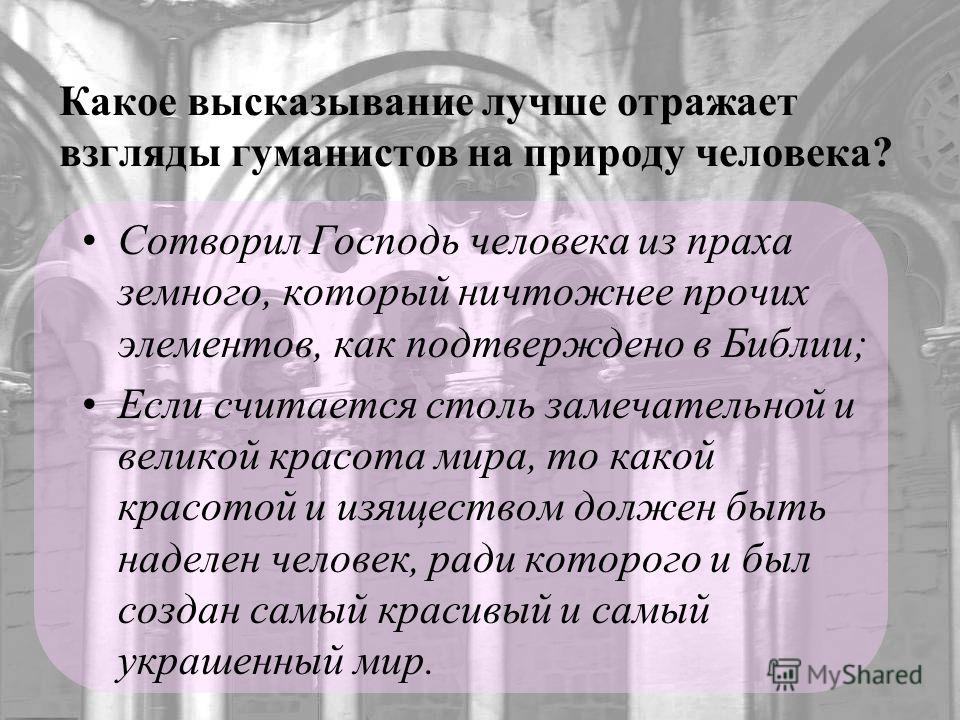
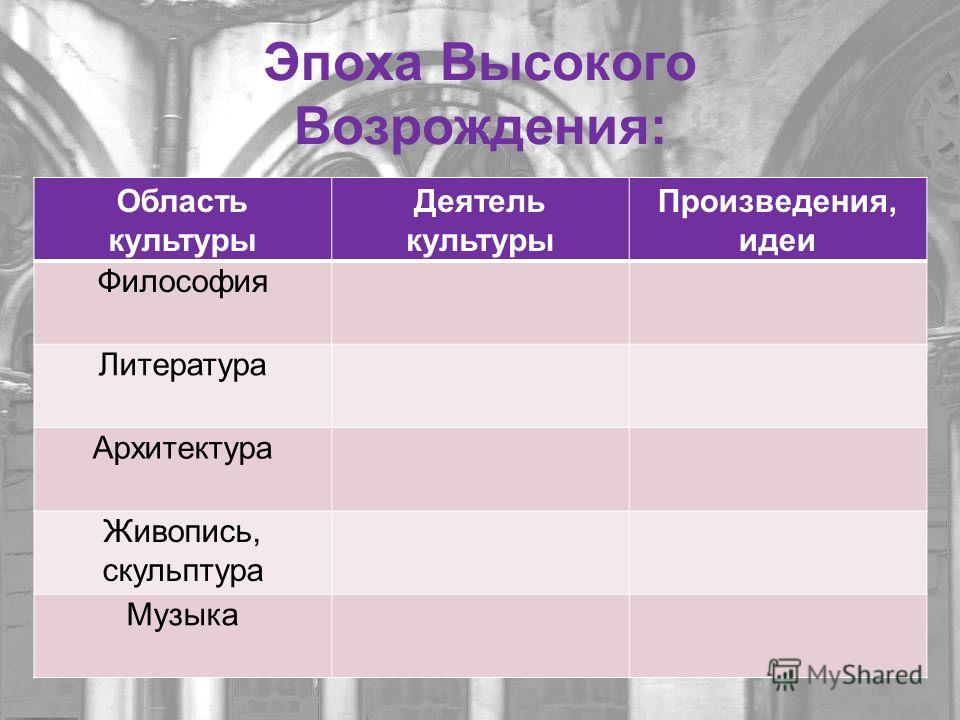
Erasmus of Rotterdam () Dutch Vcheny-humanist, writer, philologist, theologian, most representative of the Pivne Vidrodzhennya. Alive with France, England, Nimechchin, Italy, Switzerland, obeying the all-European beliefs. Writing in Latin. In the majestic decline of E. R. naybilsh vіdomі "Praise of stupidity" (1509) and "Rose easily" (151930). Perche tvir satire philosophical, other perevazhno pobutova. Pani Durist, who rewarded the praise of our own, it is easy to wrap oneself in wisdom, the nobility of stupid poverty is self-satisfied, possession of gross slavery is indiscriminate, the dear rule of life has become the cry of "nothing overwhelmed!"
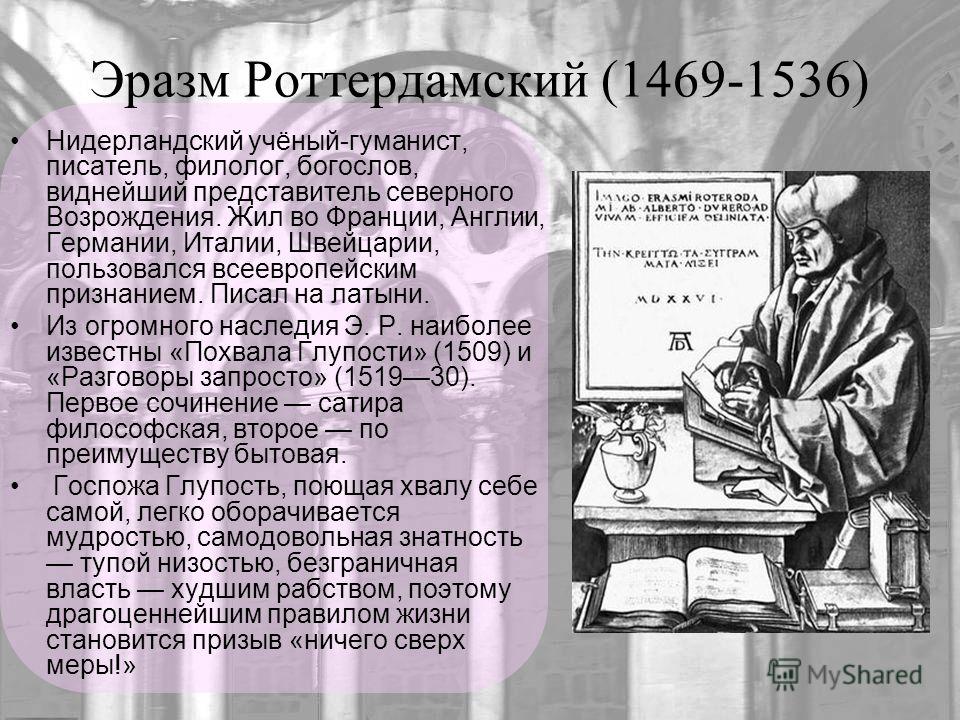
Thomas More (). English Humanist, sovereign and a writer. Sin Suddivskogo official. In 1504 Mor buv visunutiy to parliament from the London merchant, in 1510 becoming the assistant of the London sheriff, in 1518 he was promoted to the Royal Council, to the chancellor of the Duchy of Lancaster, to the chancellor of England. Mor was given an oath of allegiance to the king as the "supreme head" of the English Church, for which there was a link to the Tower (1534), the condemnation of the state's health and suffering.
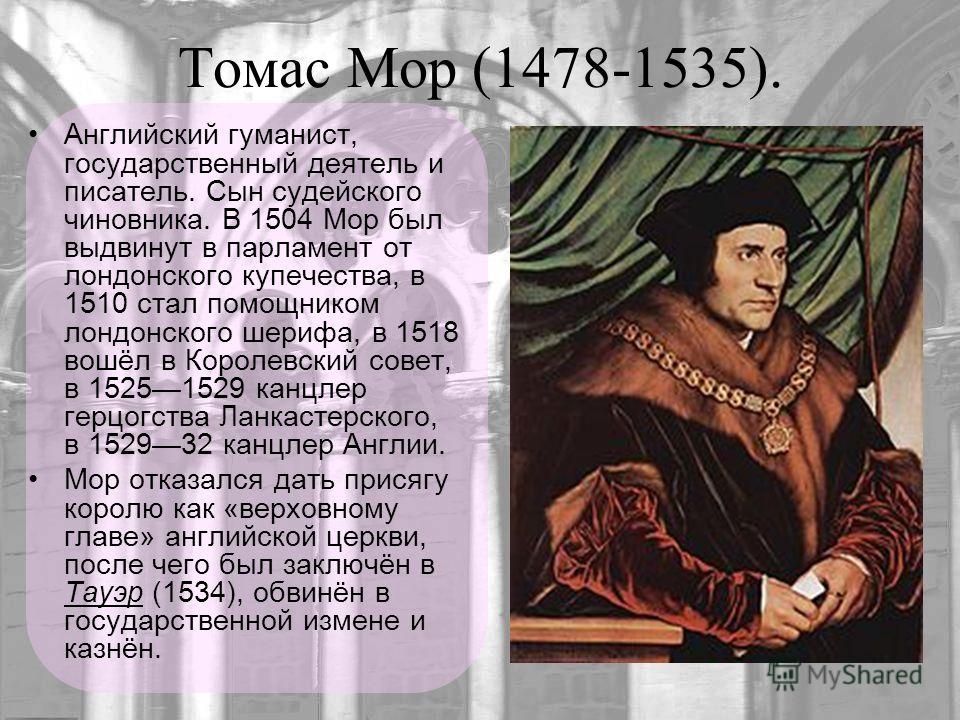
"Utopia". The greatest popularity was due to Moru's dialogue "Utopia" (1516), to avenge the description of the ideal harmony of the fantastic island of Utopia (walnut, literally "Nigdenia", misce, which is dumb; invented by M., the word has become a pronouncing). Here, the Mora, for the first time in the history of people, imagining a suspension, de-liquefied to a private (and a special) power, and introduced not only the parity of living (like in the early Christian communities), albeit a success. The work in the Utopia warehouse of the connections of all the hulks, rozpodil vіdbuvate for demand, a working day of speeding up to 6 years; the most important robots to see problems. Political device of the Utopia of training based on the principles of vibration and seniority.
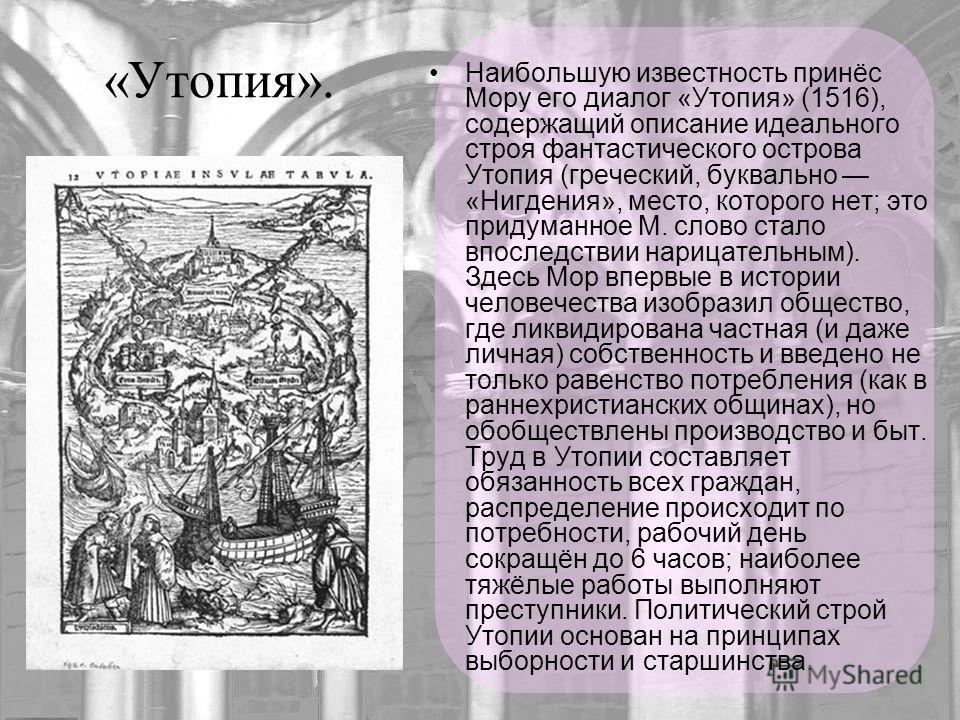
Literature Francois Rabelais (). Writing book. best Nayvidomishy tvir- novel
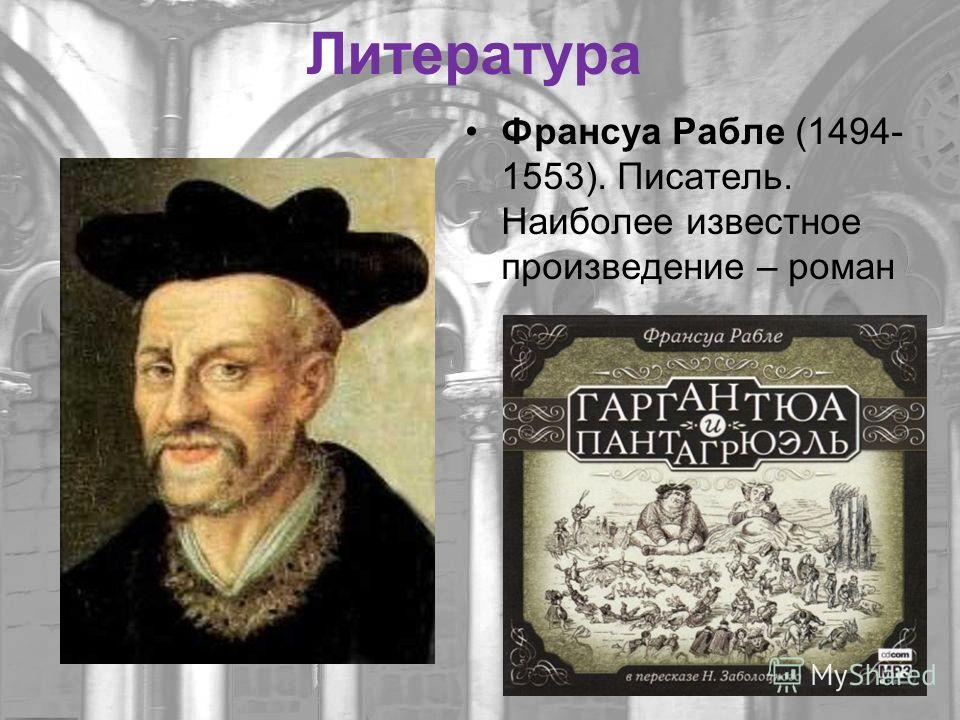
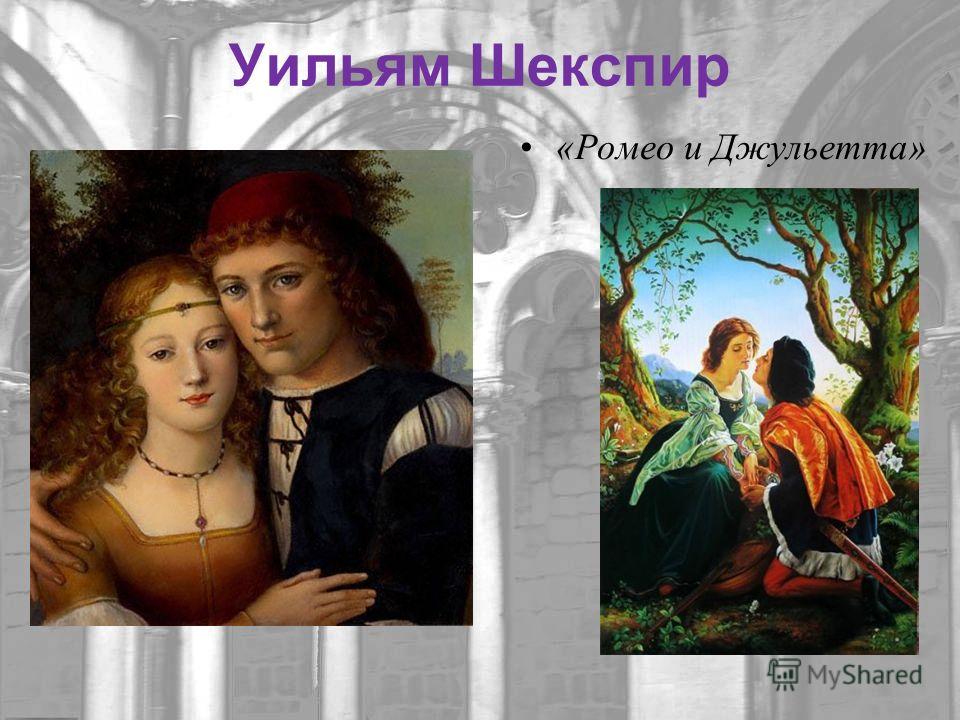
William Shakespeare Having already fallen in love, so now, now, if all the world is in my marriage. Be the most girkoyu from my vrat, Ale tilki not the last speck of grief! If sorrow has been given to me to be able to, Chi do not strike from an ambush. Do not let the burhliva fail to see nothing Doschovim vrantsi vrantsi without vidradi. Zalish me, I can't stop it, If I’m slacking from other beads, I’m slacking at once, I’m all at once, So the grief of all the neglect in sickness. But it’s not a lot of neglect, but one bida of Thy love will be embarrassed.
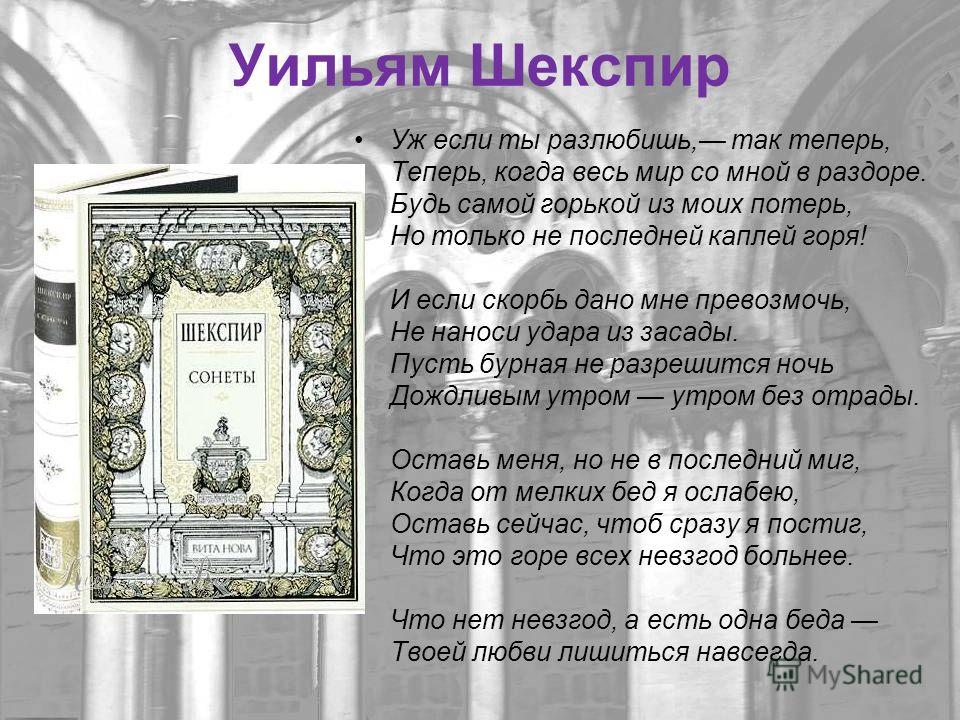
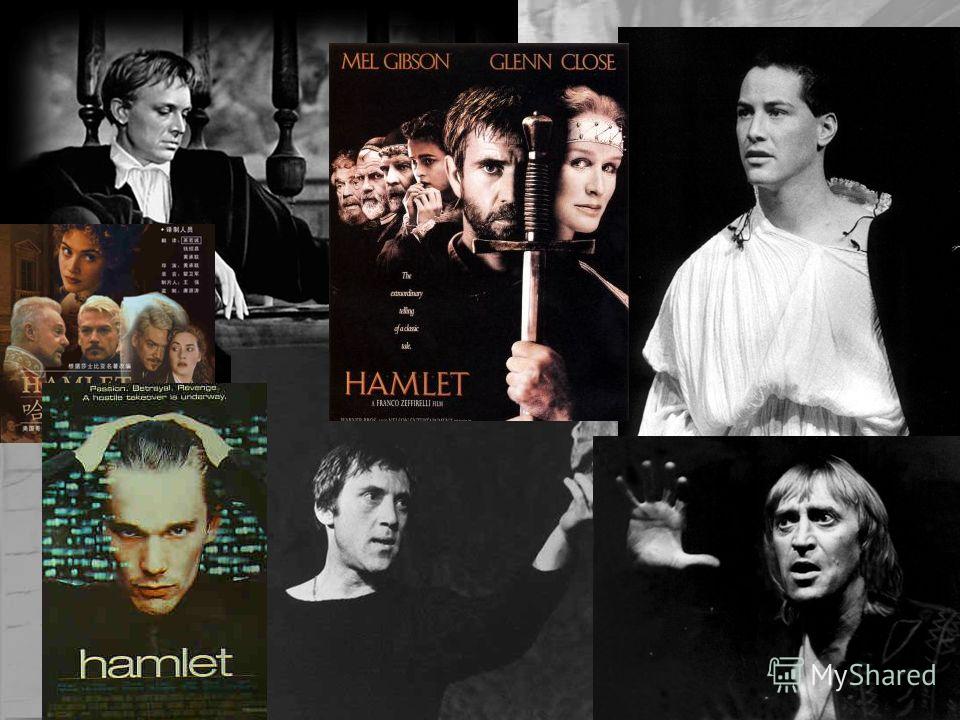
Revised table Cultural area Culturistic diyach Create, ideas Philosophy and about the new island of Utopia. " Ideas: glorifying the physical beauty and spiritual perfection of the people. Literature François Rabelais () "Gargantua and Pantagruel" Heroes-wise kings-veletni. The novel revives the old-fashioned folk traditions. William Shakespeare () “Romeo and Juliet” Ideas: the visibility of the great and the light of the people.
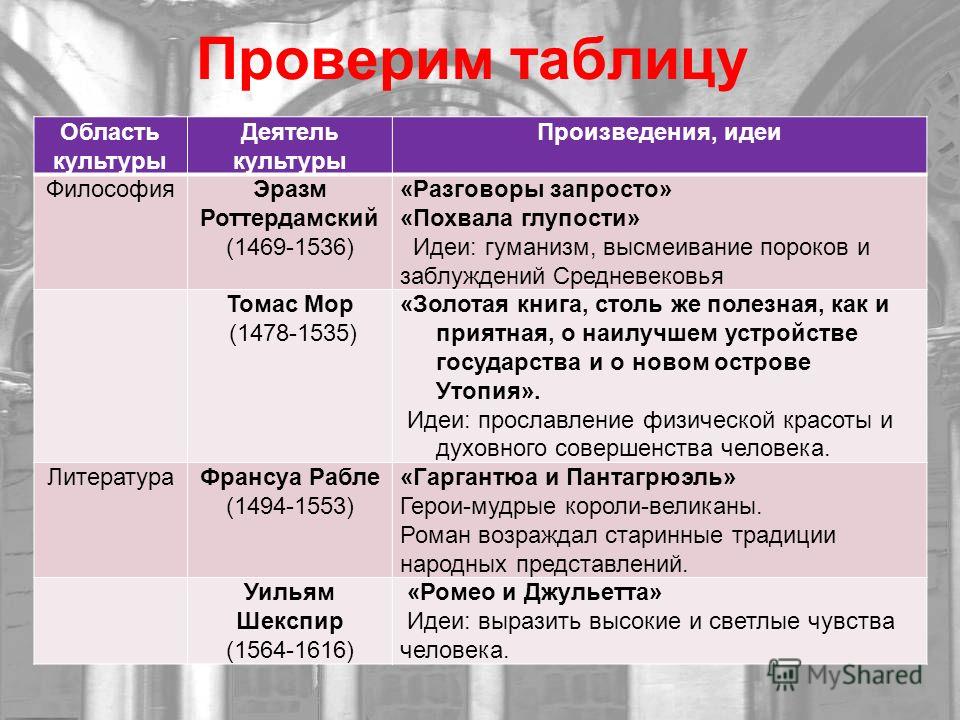
Leonardo da Vinchі () The most famous student, artist, poet of the era of the Renaissance is impressed by Leonardo da Vinchі. Yogo can be boldly called the ideal of the specialness of the new hour.
